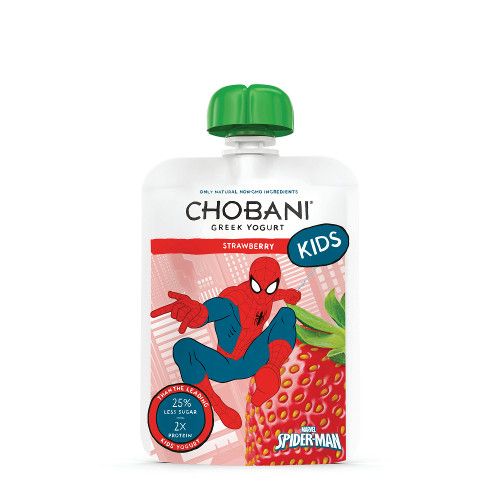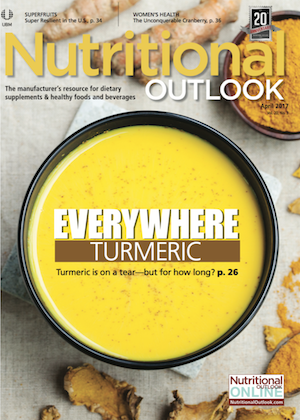Trends in Healthy Kids Products
Opportunities in the children’s health products market.

Manufacturers and retailers can find great opportunities in products designed and targeted specifically to children, especially those that cater to parents seeking cleaner labels. Parents want to buy these products. Organic and additive-free options, non-GMO, “low” and “light” alternatives, and other “free from” options, led by gluten free, are especially high in demand.
Reduced Sugar
Concerns over sugar content continue to grow, with rising publicity about high sugar intake and its role in childhood obesity and other chronic health problems. Marketers continue to lower the sugar content in kids’ products or find substitutes altogether.
The soft drinks category is now leading activity for sugar reduction, with 18% of launches recorded by Innova Market Insights in the 12 months ending June 2016 marketed as “low sugar,” “sugar free,” or “no added sugar.” In North America, this percentage was even higher, at over 22%. The highest level of sugar-reduction activity has been in juice/juice drinks and flavored bottled waters, which are both key products consumed by children (although relatively few products are targeted specifically at them).
According to Innova Market Insights data, “no additives/preservatives” continues to be the leading health claim used for U.S. soft drink launches targeted at children aged 5-12, although “no added sugar” was a strong second, used by 42% of soft drink introductions over the 2014–2016 period. An example of a child-oriented product is Surprise Drinks’ Hasbro My Little Pony Surprise & Play range of flavored spring waters. To satisfy the health concerns of parents, these drinks are 15% juice, contain no added sugar, are only 20 calories per bottle, and are additive/preservative free. For the child, the drink comes with a captivating set of licensed characters and an included toy.
Dairy
Concerns over sugar are also manifesting in more surprising areas, such as dairy.
The yogurt category in particular has come under fire for sugar content. As a result, the yogurt category has seen rising levels of sugar-reduction activity as it strives to clarify its nutritional benefits and emphasize its place as part of a healthy, balanced diet. Not surprisingly, there has been particular interest in such activity in the children’s yogurt market, where leading brands are striving to answer growing concerns.
Leading handheld children’s yogurt Yoplait Go Gurt tubes, for example, now states its sugar content (8 g) prominently on the package. The company has also addressed concerns about sweetener types, with prominent “no high-fructose corn syrup” claims. It also targets a cleaner label with the addition of its Simply brand product line.
Another yogurt brand, Chobani, markets its Chobani Kids pouches as containing “25% less sugar and twice the protein of the leading kids’ yogurt,” emphasizing that the products are also all natural, GMO-free, and low in fat.
Dietary Supplements
The United States has traditionally had a strong level of interest in dietary supplements and is the largest and most developed market in the world. U.S. supplement launches accounted for nearly one-third of global supplement launches in 2016.
U.S. consumers are the most likely to use dietary supplements to fill perceived gaps in their own diets and their family’s diets. As such, U.S. consumers account for an even higher share of the global children’s supplements market, accounting for 45% of the total. (This was equivalent to only a modest 1.2% of total U.S. dietary supplement launches over the same period, however.)
Those purchasing children’s supplements have a particular focus on general health, immunity, closing potential dietary/nutritional gaps, and boosting cognitive development. Although children’s supplements are relatively established on the market, there has been a focus in recent years on improving methods of delivery and making them more appealing to children.
Child-friendly graphics are also a hallmark of the market, as is the case with brands such as Yummi Bears, Lil Critters, Smarty Pants, and Vitamin Friends. These are increasingly being joined by character-licensed products to further encourage children’s interest. Activity in 2016 included products featuring well-known film and TV characters, such as chewable multivitamins featuring Max & Ruby characters, Mr. Men Little Miss Immune Support softies from Haliborange, and Barbie and Despicable Me/Minions multivitamin gummies from Lil Critters.
Gummies are increasingly popular in children’s supplements and are becoming more sophisticated, with appealing flavors and a range of shapes. Like other chewable options, they offer an easier-to-consume format than traditional tablets and capsules.
Powders for making shake-style drinks, and ready-to-drink liquids, are also doing well. These liquids may range from the relatively traditional, such as the elderberry syrups under the Nature’s Way Organic Sambucus for Kids brand, to the more modern, such as the Manuka Health Kids Syrup featuring Manuka honey.
Although multivitamins remain the most popular children’s supplement option, there are also products for children offering specific support in the areas of immune health, digestive health, and bone health, as well as specialized products such as The Ginger People Ginger Rescue for travel sickness, Source Naturals Wellness Earache supplements, and Prospinach’s Kidspinach Berry Appethyl, said to “reduce cravings for sweet and unhealthy foods.”
Appealing to Both
Health tends to be the key parental concern, including issues of clean labeling and nutrition. Children, on the other hand, look to features such as shapes, flavors, bright and appealing packaging, and the use of trendy licensed characters. Although parents and children may have different tastes, companies need to focus on attributes that broaden a product’s appeal to both groups.
Photo: Chobani Kids Pouches and Tubes appeal to both moms and kids. “Moms love that our yogurt has 25% less sugar and twice the protein than the leading kids’ yogurt. Kids love how it tastes and all of their favorite characters: Winnie the Pooh, Lion King, Spider-Man, Mickey Mouse, and Justice League Super Heroes, including Superman, Batman, Wonder Woman, and The Flash.” (Photo from Chobani)
Also read:
High-Priority Nutrients for Kids
Children’s Dietary Supplements
Children and Dietary Supplements: Little Kids, Big Market

Prinova acquires Aplinova to further increase its footprint in Latin America
April 7th 2025Prinova has recently announced the acquisition of Brazilian ingredients distributor Aplinova, which is a provider of specialty ingredients for a range of market segments that include food, beverage, supplements, and personal care.

























